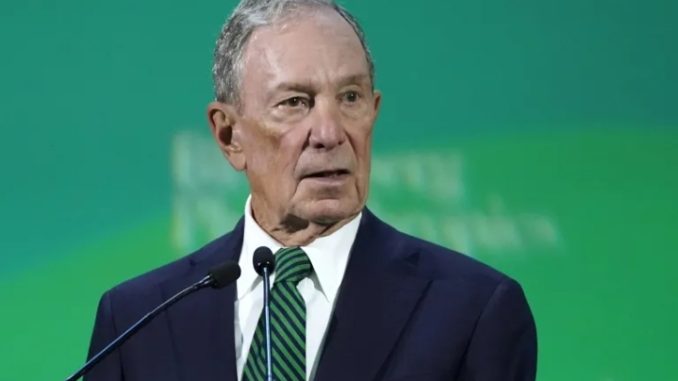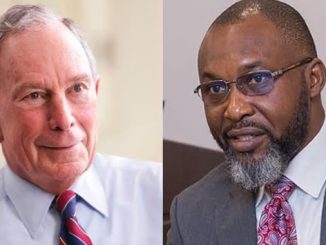
August 6, 2024
Michael Bloomberg’s organization Bloomberg Philanthropies has announced a $600 million gift to the endowments of four historically Black medical schools.
Bloomberg, the former New York City mayor and the billionaire founder of Bloomberg LP, made the announcement Tuesday in New York at the annual convention of the National Medical Association, an organization that advocates for African American physicians.
“This gift will empower new generations of Black doctors to create a healthier and more equitable future for our country,” Bloomberg said in a statement.
The gifts are among the largest private donations to any historically Black college or university, with $175 million each going to Howard University College of Medicine, Meharry Medical College and Morehouse School of Medicine. Charles Drew University of Medicine & Science will receive $75 million. Xavier University of Louisiana, which is opening a new medical school, will also receive a $5 million grant.
The donations will more than double the size of three of the medical schools’ endowments, Bloomberg Philanthropies said.
The commitment follows a $1 billion pledge Bloomberg made in July to Johns Hopkins University that will mean most medical students there will no longer pay tuition. The four historically Black medical schools are still deciding with Bloomberg Philanthropies how the latest gifts to their endowments will be used, said Garnesha Ezediaro, who leads Bloomberg Philanthropies’ Greenwood Initiative.
The initiative, named after the community that was destroyed during the race massacre in Tulsa, Oklahoma more than 100 years ago, was initially part of Bloomberg’s campaign as a Democratic candidate for president in 2020. After he withdrew from the race, he asked his philanthropy to pursue efforts to reduce the racial wealth gap and so far, it has committed $896 million, including this latest gift to the medical schools, Ezediaro said.
Denise Smith, deputy director of higher education policy and a senior fellow at The Century Foundation, said the gift to Spelman was the largest single donation to an HBCU that she was aware of, speaking before Bloomberg Philanthropies announcement Tuesday.
ALSO READ: Bangladesh Prime Minister flees amid deadly protests, military takes over governemt
Smith authored a 2021 report on the financial disparities between HBCUs and other higher education institutions, including the failure of many states to fulfill their promises to fund historically Black land grant schools. As a result, she said philanthropic gifts have played an important role in sustaining HBCUs, and pointed to the billionaire philanthropist and author MacKenzie Scott’s gifts to HBCUs in 2020 and 2021 as setting off a new chain reaction of support from other large donors, CBS News said.
“Donations that have followed are the type of momentum and support that institutions need in this moment,” Smith said.
Dr. Yolanda Lawson, president of the National Medical Association, said she felt “relief,” when she heard about the gifts to the four medical schools. With the Supreme Court’s decision striking down affirmative action last year and attacks on programs meant to support inclusion and equity at schools, she anticipates that the four schools will play an even larger role in training and increasing the number of Black physicians.
“This opportunity and this investment affects not only just those four institutions, but that affects our country. It affects the nation’s health,” she said.
Utibe Essien, a physician and assistant professor at the David Geffen School of Medicine at UCLA, who researches racial disparities in treatment, said more investment and investment in earlier educational support before high school and college would make a difference in the number of Black students who decide to pursue medicine.
He said he also believes the Supreme Court decision on affirmative action and the backlash against efforts to rectify historic discrimination and racial inequities does have an impact on student choices.
“It’s hard for some of the trainees who are thinking about going into this space to see some of that backlash and pursue it,” he said. “Again, I think we get into this spiral where in five to 10 years we’re going to see a concerning drop in the numbers of diverse people in our field.”


